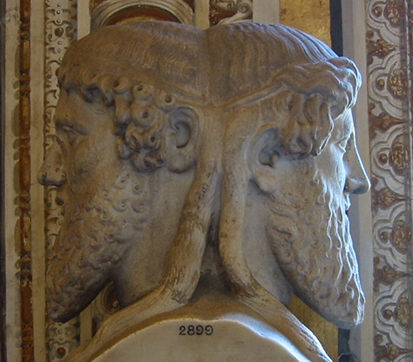| << Chapter < Page | Chapter >> Page > |
Of course, it is impossible to look inside a person’s head and study what role they are playing. All we can observe is behavior, or role performance. Role performance is how a person expresses his or her role. Sociologist Erving Goffman presented the idea that a person is like an actor on a stage. Calling his theory dramaturgy, Goffman believed that we use “impression management” to present ourselves to others as we hope to be perceived. Each situation is a new scene, and individuals perform different roles depending on who is present (Goffman 1959). Think about the way you behave around your coworkers versus the way you behave around your grandparents versus the way you behave with a blind date. Even if you’re not consciously trying to alter your personality, your grandparents, coworkers, and date probably see different sides of you.
As in a play, the setting matters as well. If you have a group of friends over to your house for dinner, you are playing the role of a host. It is agreed upon that you will provide food and seating and probably be stuck with a lot of the cleanup at the end of the night. Similarly, your friends are playing the roles of guests, and they are expected to respect your property and any rules you may set forth (“Don’t leave the door open or the cat will get out.”). In any scene, there needs to be a shared reality between players. In this case, if you view yourself as a guest and others view you as a host, there are likely to be problems.
Impression management is a critical component of symbolic interactionism. For example, a judge in a courtroom has many “props” to create an impression of fairness, gravity, and control—like her robe and gavel. Those entering the courtroom are expected to adhere to the scene being set. Just imagine the “impression” that can be made by how a person dresses. This is the reason that attorneys frequently select the hairstyle and apparel for witnesses and defendants in courtroom proceedings.

Goffman’s dramaturgy ideas expand on the ideas of Charles Cooley and the looking-glass self . According to Cooley, we base our image on what we think other people see (Cooley 1902). We imagine how we must appear to others, then react to this speculation. We don certain clothes, prepare our hair in a particular manner, wear makeup, use cologne, and the like—all with the notion that our presentation of ourselves is going to affect how others perceive us. We expect a certain reaction, and, if lucky, we get the one we desire and feel good about it. But more than that, Cooley believed that our sense of self is based upon this idea: we imagine how we look to others, draw conclusions based upon their reactions to us, and then we develop our personal sense of self. In other words, people’s reactions to us are like a mirror in which we are reflected.
Society is based on the social construction of reality. How we define society influences how society actually is. Likewise, how we see other people influences their actions as well as our actions toward them. We all take on various roles throughout our lives, and our social interactions depend on what types of roles we assume, who we assume them with, and the scene where interaction takes place.
Draw a large circle, and then “slice” the circle into pieces like a pie, labeling each piece with a role or status that you occupy. Add as many statuses, ascribed and achieved, that you have. Don’t forget things like dog owner, gardener, traveler, student, runner, employee. How many statuses do you have? In which ones are there role conflicts?
Think of a self-fulfilling prophecy that you’ve experienced. Based on this experience, do you agree with the Thomas theorem? Use examples from current events to support your answer as well.
TV Tropes is a website where users identify concepts that are commonly used in literature, film, and other media. Although its tone is for the most part humorous, the site provides a good jumping-off point for research. Browse the list of examples under the entry of “self-fulfilling prophecy.” Pay careful attention to the real-life examples. Are there ones that surprised you or that you don’t agree with? (External Link)
Berger, P. L., and T. Luckmann. 1966. The Social Construction of Reality: A Treatise in the Sociology of Knowledge . Garden City, NY: Anchor Books.
Cooley, Charles H. 1902. Human Nature and the Social Order . New York: Scribner's.
Goffman, Erving. 1959. The Presentation of Self In Everyday Life . New York: Doubleday.
Merton, Robert K. 1957. “The Role-Set: Problems in Sociological Theory.” British Journal of Sociology 8(2):110–113.
Thomas, W.I., and D.S. Thomas. 1928. The Child in America: Behavior Problems and Programs . New York: Knopf.

Notification Switch
Would you like to follow the 'Introduction to sociology 2e' conversation and receive update notifications?